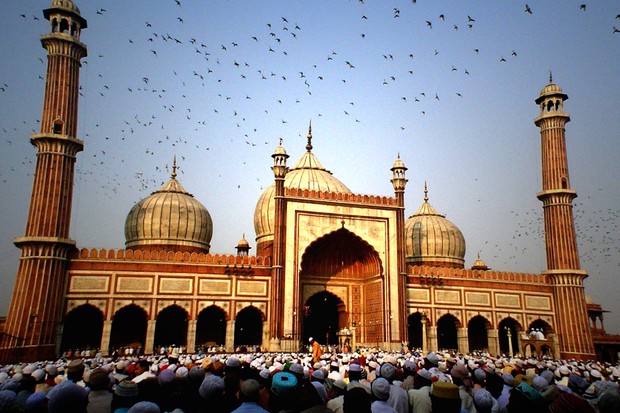This year’s Ramadan season began on April 12 as is customary on every 9th month of the Islamic calendar. And adherents of the religion worldwide are now observing their rites of fasting, prayer, and reflection to commemorate Prophet Muhammad’s first revelation in a routine expected to last between 29 to 30 days, from one sighting of the crescent moon to the next until the Eid Al-Fitr.
The duration for which Muslim worshipers are expected to fast could differ depending on how much dawn-to-dusk time cities, countries, and climes are expected to have within any year in focus based on seasonal time changes.
According to Gulf News, the Russian city of Murmansk will be fasting for almost 18 hours from 2:43 am (sunrise) to 8:38 pm (sunset) this year — observing the longest fast in the world with just over six hours of darkness.
Contrarily, the Argentinean town of Ushuaia is observing the shortest in the world — having exactly 12 hours, 23 minutes (from 6:23 am to 6:46 pm) between sunrise when the fasting begins and sunset when the fast is broken.
Below is a list of cities with the longest and shortest intervals from Fajr to Maghreb prayer (dawn to dusk):
- Ushuaia, Argentina (12:23 hours)
- Santiago, Chile (12:41 hours)
- Rio de Janeiro, Brazil (12:51 hours)
- Lima, Peru (13:01 hours)
- Dar Es Salam, Tanzania (13:08 hours)
- Manila, Philipines (13:39 hours)
- Sanaa, Yemen (13:47 hours)
- Hyderabad, India (13:48 hours)
- Miami, USA (13:49 hours)
- Kerala, India (13:56 hours)
- Riyadh, Saudi Arabia (14:02 hours)
- Muscat, Oman (14:02 hours)
- Dubai, UAE (14:05 hours)
- Cairo, Egypt (14:22 hours),
- Jerusalem, Palestine (14:23 hours)
- Islamabad, Pakistan (14:29 hours)
- New Delhi, India (14:33 hours)
- New York, USA (14:34 hours)
- Los Angeles, USA (14:36 hours)
- Baghdad, Iraq (14:36 hours)
- Beirut, Lebanon (14:38 hours)
- Tehran, Iran (14:38 hours)
- Athens, Greece (14:42 hours)
- Toronto, Canada (14:47 hours)
- Rome, Italy (14:58 hours)
- Paris, France (15:18 hours)
- London, England (15:21 hours)
- Edinburgh, Scotland (15:43 hours)
- Copenhagen, Denmark (16:02 hours)
- Moscow, Russia (16:11 hours)
- Berlin, Germany (16:15 hours)
- Lulea, Sweden (16:52 hours)
- Anchorage, Alaska (16:57 hours)
- Oslo, Norway (17:18 hours)
- Helsinki, Finland (17:19 hours)
- Fairbanks, Alaska (17: 20 hours)
- Stockholm, Sweden (17:24 hours)
- Reykjavik, Iceland (17:39 hours)
- Svalbard, Iceland (17: 51 hours)
- Murmansk, Russia (17:55 hours)
In its report, the Dubai-based newspaper stated: “In countries where sunset and sunrise are too close (less than 3 hours apart) or are indistinguishable, fatwas (legal opinion in Islamic law given by a qualified jurist) have been issued to allow Muslims to follow the timings of the closest city that has distinguishable day and night timings.
“So, if Ramadan were taking place in June, people in Sweden for example would be observing a midnight sun phenomenon, which would make it nearly impossible for Muslims to fast there. So, they would look to a neighbouring country to follow their fasting times.”
For Muslims living close to the equator as in most of the Middle East, the report pointed out that the same amount of fasting is expected irrespective of the season as the dawn-to-dusk window usually always lasts about 14 hours.
It added: “Those in the southern and northern hemispheres will experience the most amount of change, as Ramadan moves by ten days each coming year. At the moment, cities in the southern hemisphere experience shorter fasting times, when Ramadan falls during spring and summer.
“While those living in the northern hemisphere will typically experience much longer days. For example, in Glasgow, Scotland, the fast is 17 hours a day during summer and only nine hours a day in winter.”
Copyright 2025 TheCable. All rights reserved. This material, and other digital content on this website, may not be reproduced, published, broadcast, rewritten or redistributed in whole or in part without prior express written permission from TheCable.
Follow us on twitter @Thecablestyle


Fasting is not from Sunrise to Sunset. Fasting is from Dawn to Sunset. With respect to Murmansk, the time you put as Sunrise is actually dawn (2:43). Sunrise is approximately 90 mins later at 4:13 (for April 23, tomorrow).
Toronto Fasting today roughly 15 hr 15min, from 4:55 to 8:11. The 14:47 quoted in your list must have been for the first day of fasting. It will continue to increase 16:40 by the end of fasting in May. By then Murmansk fasting time will probably be closer to 20 mins.